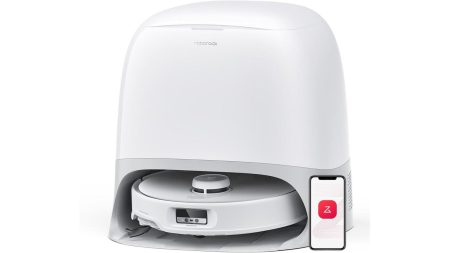Laughter may, indeed, be the best medicine. That was the message of Group Therapy, a new documentary that premiered at the Tribeca Festival. Directed by Neil Berkeley and produced by Hartbeat, Kevin Hart’s multi-platform entertainment company, the film features a unique but compelling setup: six comedians at the top of their game sit in a circle, surrounded by a live audience, and share their experiences with mental health through personal and professional struggles and triumphs. The conversation is moderated by Neil Patrick Harris who may have played the child prodigy physician Dr. Doogie Howser early in his career, but he made one thing very clear: “I am not a therapist!”
The cast includes Mike Birbiglia, Nicole Byer, Gary Gulman, London Hughes, Atsuko Okatsuka and Tig Notaro. I was moved by the authenticity and vulnerability expressed by each comic, from Gulman’s childhood depression and Byer’s weight to Notaro’s four-month emotional tornado which included a diagnosis of invasive breast cancer and her mother’s untimely death. Harris was also very open about getting help: “I love therapy, couples therapy; I paid for my mom’s therapy.” Before the screening, Berkeley and Bryan Smiley, President and Chief Content Officer of Hartbeat, briefly introduced the film.
Four Comics And A Doctor
I had the opportunity to interview four of the performers before the screening. The small, bland, artless room resembling a hostage interrogation space where the interview took place was a stark contrast to the lively, honest and funny stories shared by the talented Gulman, Notaro, Hughes and Okatsuka. When I asked how comedy affected their health, I was touched by their responses.
“I always felt that being around people was an anti-depressant,” shared Gulman who talked about his depression and hospitalization in his 2019 HBO special, The Great Depresh.
Comedy has helped British comic, Hughes, deal with the mental anguish of dating by going on stage and venting. “Any guy who’d done me wrong, now I can make money off of! It’s my therapy, basically.”
Notaro quipped to Hughes, “I found the right person and she still ends up in my jokes.” As far as comedy’s impact on Notaro’s health, “the instant feedback is helpful in processing everything, physically and emotionally,” reflects the Emmy-nominated creator of Boyish Girl Interrupted.
Okatsuka, raised by Japanese and Taiwanese parents, describes the positive and negatives aspects of the comedy “lifestyle” including the late nights. “Your true self comes out at night. You have to keep your day-time and night-time friends separate or else they’ll know you’re a liar.” Notaro’s deadpan reaction—“I think you’re living a lot more complicated life than I am”—prompted laughter from us all!
As an addiction medicine physician, over half of my patients experience some form of mental illness. Working three clinical jobs during the pandemic and appearing on air over 300 times led to complete burnout, anxiety and depression. In addition to professional help, I relied heavily on standup comedy, sitcoms and other forms of humor to manage many stressors. So, Group Therapy, resonated with me on many levels; and exploring health and humor with these four generous and gifted comedians was enlightening, entertaining and inspiring.
Early Emotional Upheaval And Shame
A common theme among the comedians was a difficult or negative emotional experience early in life. Okatsuka felt “confusion and sadness growing up.” Her mother was diagnosed with schizophrenia but “refused meds, never left the house.” As fellow Asians, I shared that depression and anxiety were never discussed in my Indian upbringing. Okatsuka agrees, stating in the film, “I never knew what mental illness was a child.”
In the doc, Emmy-nominated Byer describes being “diagnosed with ADHD; I thought I was crazy and lazy.” Gulman credits his brother for identifying his childhood symptoms then years later diagnosing him with depression. “Since I was seven years old, I coudlnt’ imagine an ending that wasn’t self-inflicted,” reflects the former Boston College football player.
A recurring theme among the artists was stigma. Previously, they were all embarrassed or ashamed to talk about their mental health experiences. This is consistent with real life: over half the people with mental illness don’t receive help. Stigma is a major barrier to care.
“You’re as sick as your secrets,” remarks Birbiglia who identifies Mitch Hedberg as his role model and friend. Opening for the late comic was a dream come true. But his drug addiction was getting worse. “Fans offered him drugs,” recalls Birbiglia. “This is bad.”
Smiley recognizes the taboo nature of mental health. “By leveraging these famous comedic voices to talk about mental health in an authentic and honest way, it’s our belief that we can create change by telling people it’s okay to talk about your struggles. Let’s be our authentic selves.”
Mental Illness Is A Global Epidemic
A 2023 study led by researchers at Harvard Medical School and the University of Queensland showed that half the globe will develop a mental health disorder in their lifetime. One of the many alarming realities of this data is that we simply don’t have the workforce pipeline to manage this massive burden of disease: insufficient number of therapists/counselors, psychologists, doctors and nurses. Psychiatric medications are also lacking in number, efficacy and access: individuals in low- and middle-income countries have difficulty accessing psych meds and face higher prices of generic medicines.
Marginalized communities including people of color are disproportionately impacted by mental illness. Black Americans are less likely to seek mental health care and face a lack of cultural sensitivity from health professionals. Native Americans also experience disproportionately higher rates of depression and substance use than their white counterparts. Both communities experience intergenerational trauma where oppressive events impacting one generation tend to be carried over in later generations through emotional and behavioral reactions. Serving underserved communities was a major impetus for Hartbeat to get involved in Group Therapy.
“Oftentimes, with pain comes shame. So many ethnic groups have been told to be strong and to persevere. Whether you’re an immigrant who left everything to make it in a foreign land or you’ve been a member of a marginalized community for so long, you’ve just had to survive,” explains Smiley. “As a Black man, I am always very vocal about the benefits of therapy. There’s no shame in it. Just like the comedians share in the documentary.”
Health Benefits Of Humor
The adage, ‘laughter is the best medicine,’ exists for good reason. Studies show that humor can truly do the mind and body good. Short-term health benefits of laughter include relieving tension and stimulating organs by delivering more oxygen-rich blood. Long-term, laughter can relieve pain; boost your immune system and your mood; and it can reduce your risk of a heart attack by increasing HDL (the “good” cholesterol) and reducing arterial inflammation.
Laughter also strengthens social bonds. It connects people and creates community. Laughter also makes it easier to cope with difficult situations. Smiley would agree: “The power of humor is that you can really talk about anything and disarm people into discussing really serious topics.”
Treatment Options For Mental Health Issues
The good news about mental illness is that treatment is available and typically includes medication, therapy (virtual or in-person) or both. There are many ways to get help: a primary care doctor can perform an initial mental health assessment, prescribe medication(s) and/or refer you to a clinical social worker, psychologist or psychiatrist. Federal resources include SAMHSA, NIMH and the VA system for veterans. Your local public health department, universities (for students) and employee assistance programs are also good options.
Several classes of medications have been shown to reduce symptoms including selective serotonin reuptake inhibitors (SSRIs) like fluoxetine (“Prozac”) and sertraline (“Zoloft”); antipsychotics such as quetiapine (“Seroquel”) and olanzapine (“Zyprexa”); mood stabilizers like lithium and lamotrigine (“Lamictal”); and stimulants like amphetamine (“Adderall”) and methylphenidate (“Ritalin”). Each med is associated with side effects so review these carefully with your physician, NP or PA.
Psychotherapy or talk therapy is another evidence-based treatment option for mental health disorders. Almost every cast member of Group Therapy talked about their positive, life-transforming experiences with therapy. Hartbeat’s Smiley is also a fan: “I’ve been in therapy for years. I encourage all of my friends and family to get in therapy and stay as long as it’s beneficial.”
Other treatment options include electroconvulsive therapy (ECT) which Gulman underwent; transcranial magnetic stimulation (TMS) and other brain stimulation therapies. Support of all kinds can truly improve overall mental wellbeing. Housing, clothing, education, jobs, exercise, sleep and healthy diet all play an important role in keeping us mentally safe and healthy.
Final Thoughts
As soon as I heard about this film, I jumped at the opportunity to learn more. Group Therapy truly merges my passion for medicine with media and entertainment. I’ve written previously about the importance of celebrities such as Ryan Reynolds and Naomi Osaka speaking openly about mental health. The reality is that when high-profile figures speak, the public listens. And when celebs use their massive platforms to promote health, medical professionals like me couldn’t be more thrilled. If you or someone you know is struggling, please get help. It’s available. If you’re suicidal or in emotional distress, call or text 988 (press ‘1’ if you’re a veteran). Find a mental health professional near you.
As a doctor working in the brain biology space, I am grateful to Neil Berkely for skillfully directing this film, to the gifted comedians for sharing their stories, and to the Hartbeat team for making this film a reality. An exciting scoop from Smiley: “We’re in deep conversations about the next version of this project … don’t be surprised if there’s a Group Therapy 2!”
Read the full article here






